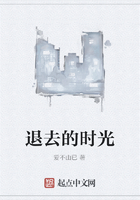It thus appears that the only governments, not representative, in which high political skill and ability have been other than exceptional, whether under monarchical or aristocratic forms, have been essentially bureaucracies. The work of government has been in the hands of governors by profession; which is the essence and meaning of bureaucracy. Whether the work is done by them because they have been trained to it, or they are trained to it because it is to be done by them, makes a great difference in many respects, but none at all as to the essential character of the rule. Aristocracies, on the other hand, like that of England, in which the class who possessed the power derived it merely from their social position, without being specially trained or devoting themselves exclusively to it (and in which, therefore, the power was not exercised directly, but through representative institutions oligarchically constituted) have been, in respect to intellectual endowments, much on a par with democracies; that is, they have manifested such qualities in any considerable degree only during the temporary ascendancy which great and popular talents, united with a distinguished position, have given to some one man. Themistocles and Pericles, Washington and Jefferson, were not more completely exceptions in their several democracies, and were assuredly much more splendid exceptions, than the Chathams and Peels of the representative aristocracy of Great Britain, or even the Sullys and Colberts of the aristocratic monarchy of France. A great minister, in the aristocratic governments of modern Europe, is almost as rare a phenomenon as a great king.
The comparison, therefore, as to the intellectual attributes of a government, has to be made between a representative democracy and a bureaucracy; all other governments may be left out of the account. And here it must be acknowledged that a bureaucratic government has, in some important respects, greatly the advantage. It accumulates experience, acquires well-tried and well-considered traditional maxims, and makes provision for appropriate practical knowledge in those who have the actual conduct of affairs. But it is not equally favourable to individual energy of mind. The disease which afflicts bureaucratic governments, and which they usually die of, is routine.
They perish by the immutability of their maxims; and, still more, by the universal law that whatever becomes a routine loses its vital principle, and having no longer a mind acting within it, goes on revolving mechanically though the work it is intended to do remains undone. A bureaucracy always tends to become a pedantocracy. When the bureaucracy is the real government, the spirit of the corps (as with the Jesuits) bears down the individuality of its more distinguished members. In the profession of government, as in other professions, the sole idea of the majority is to do what they have been taught; and it requires a popular government to enable the conceptions of the man of original genius among them to prevail over the obstructive spirit of trained mediocrity. Only in a popular government (setting apart the accident of a highly intelligent despot) could Sir Rowland Hill have been victorious over the Post Office. A popular government installed him in the Post Office, and made the body, in spite of itself, obey the impulse given by the man who united special knowledge with individual vigour and originality. That the Roman aristocracy escaped this characteristic disease of a bureaucracy was evidently owing to its popular element. All special offices, both those which gave a seat in the Senate and those which were sought by senators, were conferred by popular election. The Russian government is a characteristic exemplification of both the good and bad side of bureaucracy; its fixed maxims, directed with Roman perseverance to the same unflinchingly-pursued ends from age to age; the remarkable skill with which those ends are generally pursued; the frightful internal corruption, and the permanent organised hostility to improvements from without, which even the autocratic power of a vigorous-minded Emperor is seldom or never sufficient to overcome; the patient obstructiveness of the body being in the long run more than a match for the fitful energy of one man. The Chinese Government, a bureaucracy of Mandarins, is, as far as known to us, another apparent example of the same qualities and defects.















